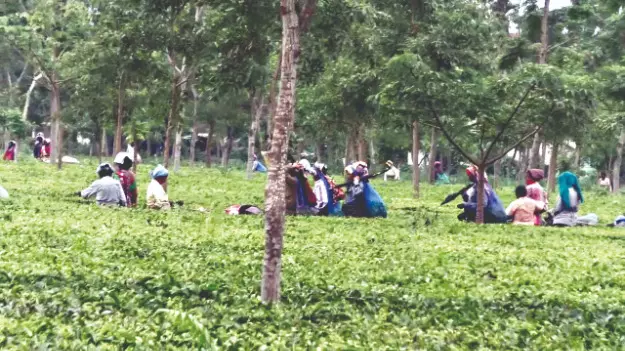
Darjeeling, April 10 -- The Bengal government has constituted state and district-level task forces to implement the ban on the use of hazardous insecticides and pesticides in the tea industry. This is to ensure the safety and quality of tea produced in Bengal.
This was announced by a Gazette Notification No. LABR/134/T&J dated April 4, 2025 to ensure the prohibition of the sale, distribution and use of banned pesticides in tea cultivation, processing and trading.
The State Level Task Force will be headed by the Secretary of the Labour department, with the Labour Commissioner acting as the convenor. Other members include senior officials from the Health & Family Welfare Department, Agriculture Department, and North Bengal police administration. The task force is mandated to meet quarterly to review enforcement actions and provide policy guidance to the district-level bodies.
The District Level Task Forces will operate in the key tea-producing districts of Darjeeling, Kalimpong, Cooch Behar, Alipurduar, Jalpaiguri and North Dinajpur. These will be chaired by the respective District Magistrates and will include the Superintendent of Police, health officials and agriculture and food safety representatives. The district teams will meet monthly to monitor compliance and conduct random sampling of tea leaves and processed teas to detect any pesticide residues. Any violation could lead to confiscation and legal action under the Food Safety and Standards Act, 2006.
Strict measures will be enforced to regulate the movement of tea consignments across international and inter-state borders. The IGP, North Bengal, will ensure police cooperation, while the SPs and Siliguri Commissionerate will check for necessary documentation like Form-3 NOC and laboratory test reports for teas, especially those imported from Nepal. If any tea consignment lacks the required certifications, it will be confiscated and tested at government laboratories. Costs for testing will be borne by the owner or importer of the tea.
The Food Safety Officer is empowered to take tea samples from any seller, processor, or importer. If found non-compliant with safety standards, the teas will be destroyed, and the responsible parties prosecuted under Section 59 of the Food Safety and Standards Act.
The District Magistrates will also coordinate awareness campaigns among tea stakeholders on the health hazards of banned pesticides. Inspectors from the Labour department will assist food safety officers during sampling drives.
"The Darjeeling Tea Industry is grateful to the Government of West Bengal for constituting the task forces for monitoring the sale, distribution and use of banned insecticide/ pesticides in cultivation, processing and trading of tea and tea products," stated Sandip Mukherjee, Principal Advisor, Darjeeling Tea Association.
The excessive and sometimes illegal use of pesticides in tea gardens of North Bengal is taking a toll on the region's tea trade. Exporters and traders report increasing rejection of consignments by international buyers, especially from the European Union and Japan, due to high pesticide residues. In the past, small tea growers faced grave problems owing to this.
Buyers are demanding certification and residue-free testing reports and many are shifting to teas from regions with stricter quality control. This has led to a dip in demand for teas from districts in this region. The Darjeeling tea industry has been repeatedly complaining of low-cost tea from Nepal being blended and sold off as premium Darjeeling tea. The industry has been demanding stringent regulatory action for a long time.
Published by HT Digital Content Services with permission from Millennium Post.
